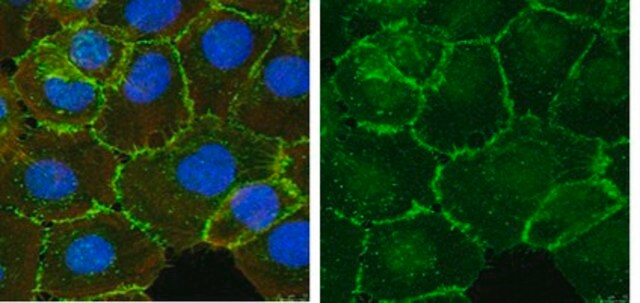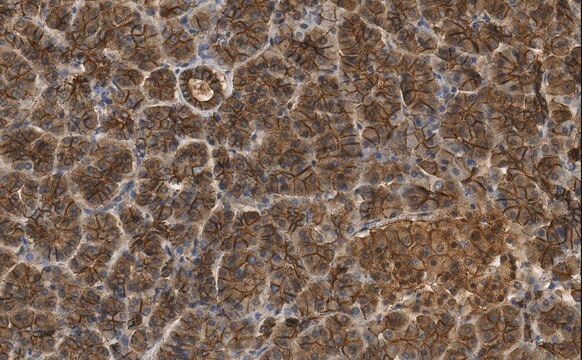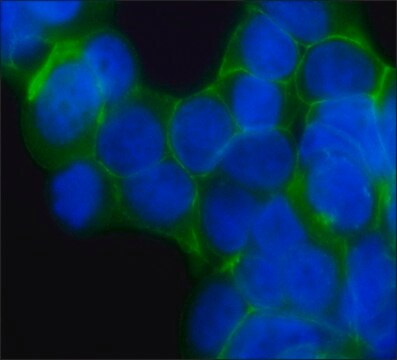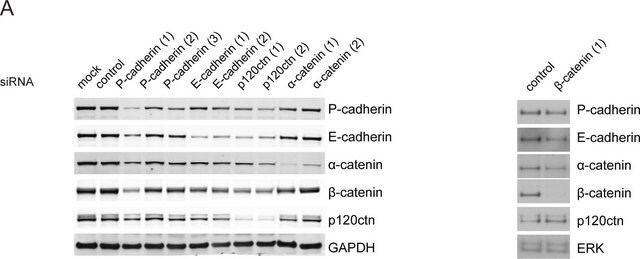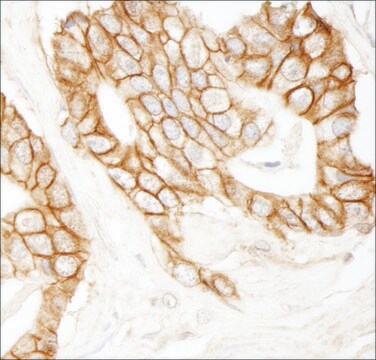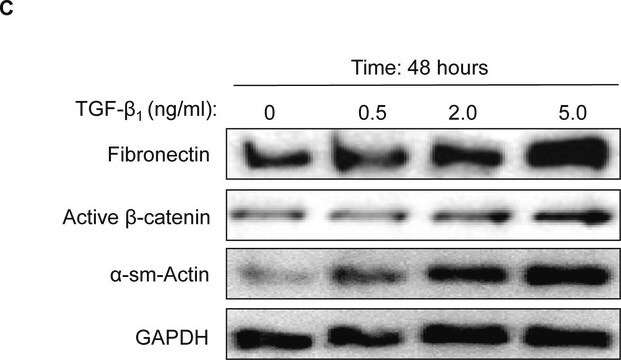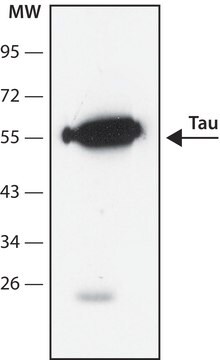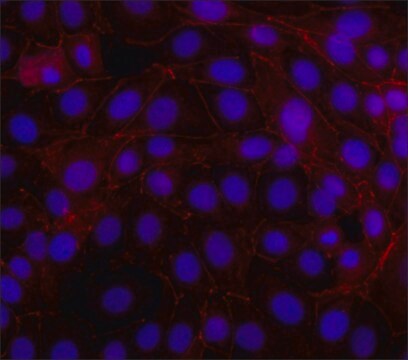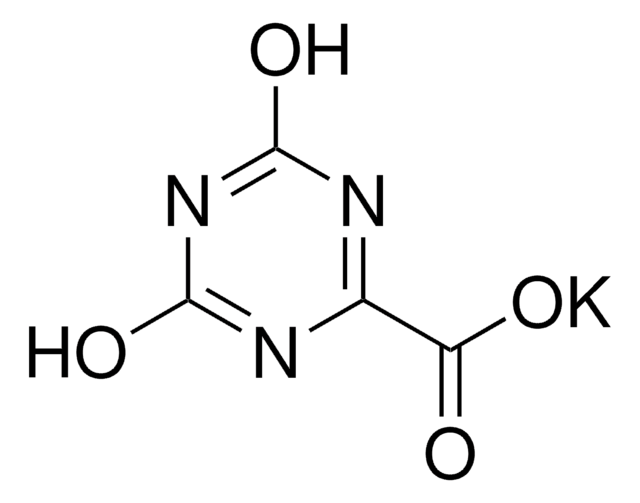ABE208
Anti-β-Catenin Antibody
from rabbit, purified by affinity chromatography
Synonym(s):
catenin (cadherin-associated protein), beta 1, 88kDa, catenin (cadherin-associated protein), beta 1 (88kD)
About This Item
Recommended Products
biological source
rabbit
Quality Level
antibody form
affinity isolated antibody
antibody product type
primary antibodies
clone
polyclonal
purified by
affinity chromatography
species reactivity
mouse, human, rat, horse
species reactivity (predicted by homology)
ox (based on 100% sequence homology), equine (based on 100% sequence homology)
technique(s)
immunocytochemistry: suitable
immunoprecipitation (IP): suitable
western blot: suitable
NCBI accession no.
UniProt accession no.
shipped in
wet ice
target post-translational modification
unmodified
Gene Information
horse ... Ctnnb1(100055241)
human ... CTNNB1(1499)
mouse ... Ctnnb1(539003) , Ctnnb1(12387)
rat ... Ctnnb1(84353)
General description
Specificity
Immunogen
Application
Immunocytochemistry Analysis: 1:500 dilution from a representative lot detected β-Catenin in NIH/3T3 and A431 cells.
Epigenetics & Nuclear Function
Transcription Factors
Quality
Western Blot Analysis: 0.05 µg/mL of this antibody detected β-Catenin on 10 µg of A431 cell lysate.
Target description
Linkage
Physical form
Storage and Stability
Analysis Note
A431 cell lysate
Other Notes
Disclaimer
Not finding the right product?
Try our Product Selector Tool.
recommended
Storage Class
12 - Non Combustible Liquids
wgk_germany
WGK 1
flash_point_f
Not applicable
flash_point_c
Not applicable
Certificates of Analysis (COA)
Search for Certificates of Analysis (COA) by entering the products Lot/Batch Number. Lot and Batch Numbers can be found on a product’s label following the words ‘Lot’ or ‘Batch’.
Already Own This Product?
Find documentation for the products that you have recently purchased in the Document Library.
Customers Also Viewed
Our team of scientists has experience in all areas of research including Life Science, Material Science, Chemical Synthesis, Chromatography, Analytical and many others.
Contact Technical Service
